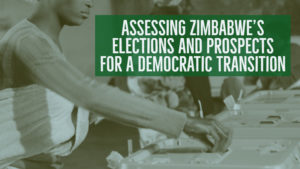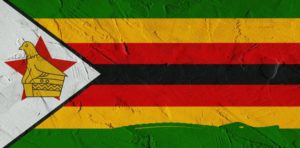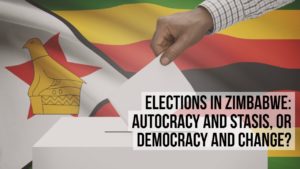Voter suppression and intimidation directed by the government marred Zimbabwe’s elections, which reaffirmed incumbent Emmerson Mnangagwa’s power and will likely prolong the country’s dysfunction and severe economic woes, says CFR expert Michelle Gavin.
No reasonable person would call these elections fair, which is why several observer missions, including the Southern African Development Community (SADC) and the European Union, issued statements pointing to profound flaws in the process. But the deck was stacked well before these missions arrived on the ground, she writes.
 “We strongly condemn the intimidation and disruption of lawful election observers throughout the electoral period,” said the U.S. State Department. “On August 23 the government arrested staff from respected civil society organizations engaged in lawful election observation in accordance with the Electoral Act. These arrests prevented efforts to independently verify ZEC’s announced results, a fundamental component of democratic processes in the region and around the world.”
“We strongly condemn the intimidation and disruption of lawful election observers throughout the electoral period,” said the U.S. State Department. “On August 23 the government arrested staff from respected civil society organizations engaged in lawful election observation in accordance with the Electoral Act. These arrests prevented efforts to independently verify ZEC’s announced results, a fundamental component of democratic processes in the region and around the world.”
The State Department highlighted “systemic bias against political opposition during the pre-election period,” which it said violated assurances of Mnangagwa, who was declared the winner.
On the eve of the election day, police arrested a total of 41 staff members and volunteers from two civil society organizations, the Zimbabwe Election Support Network (ZESN) and the Election Resource Centre (ERC), the World Movement for Democracy adds:
 As accredited domestic election observers, ZESN and ERC carried out a parallel voter tabulation (PVT), an internationally recognized scientific and independent method used to verify the accuracy of official election results. …. In the post-election period, it has been reported that citizen election observers, civil society leaders, and members of a main opposition political party have been threatened and intimidated by Zimbabwe’s authorities…. The questionable raids against ZESN and ERC underscore the fragility of the nation’s democracy, especially in light of preliminary reports from the Southern African Development Community (SADC), the African Union (AU), and European Union (EU) election observers who have expressed deep concerns over the arrests as contrary to regional and international benchmarks on free and fair elections.
As accredited domestic election observers, ZESN and ERC carried out a parallel voter tabulation (PVT), an internationally recognized scientific and independent method used to verify the accuracy of official election results. …. In the post-election period, it has been reported that citizen election observers, civil society leaders, and members of a main opposition political party have been threatened and intimidated by Zimbabwe’s authorities…. The questionable raids against ZESN and ERC underscore the fragility of the nation’s democracy, especially in light of preliminary reports from the Southern African Development Community (SADC), the African Union (AU), and European Union (EU) election observers who have expressed deep concerns over the arrests as contrary to regional and international benchmarks on free and fair elections.
Zimbabwean opposition leader Nelson Chamisa has called for solidarity from regional partners against a vote he called a “gigantic fraud” that returned Emmerson Mnangagwa to power in Zimbabwe, The Guardian reports.
“Africa, do not leave us. Particularly our brothers and sisters in the region and the continent. We count on your solidarity as we seek to solve this political crisis,” Chamisa said at a press conference in Harare.
 The World Movement for Democracy urges the regional and international community to:
The World Movement for Democracy urges the regional and international community to:
- Continue to speak out against the unjust arrests and demand all charges to be dropped, highlighting civil society’s vital role in a democratic election.
- Continue monitoring the situation, ensuring the safety and well-being of arrested members, and ensuring that future electoral processes remain transparent and fair.
- Continue to support civil society organizations in Zimbabwe to do their vital work.
- Encourage the Government of Zimbabwe to embrace civil society as a collaborative partner in the electoral process to ensure a transparent and inclusive electoral environment.
- Urge the Government of Zimbabwe to refrain from using unconstitutional provisions contained in various pieces of legislation such as the Maintenance of Peace and Order Act (MOPA), the Criminal Law (Reform and Codification) Act, Private Voluntary Organizations (PVO) Bill and any other laws it is promoting to victimize civil society and other voices deemed to be critical of the government.
- Urge the Southern African Development Community (SADC) to ensure that the Government of Zimbabwe adheres to its Constitution, the Electoral Act, the SADC Principles and Guidelines Governing Democratic Elections, and other commitments to regional and international frameworks safeguarding the fundamental rights of association, expression, and assembly for its citizens.
Election Resource Centre (ERC) and Zimbabwe Election Support Network (ZESN) have called for the immediate release of their staff and volunteers who were arrested at their data centers, saying the accredited observers were operating within the confines of the law. pic.twitter.com/kEWUfUm6cp
— NewZimbabwe.com (@NewZimbabweCom) August 25, 2023







